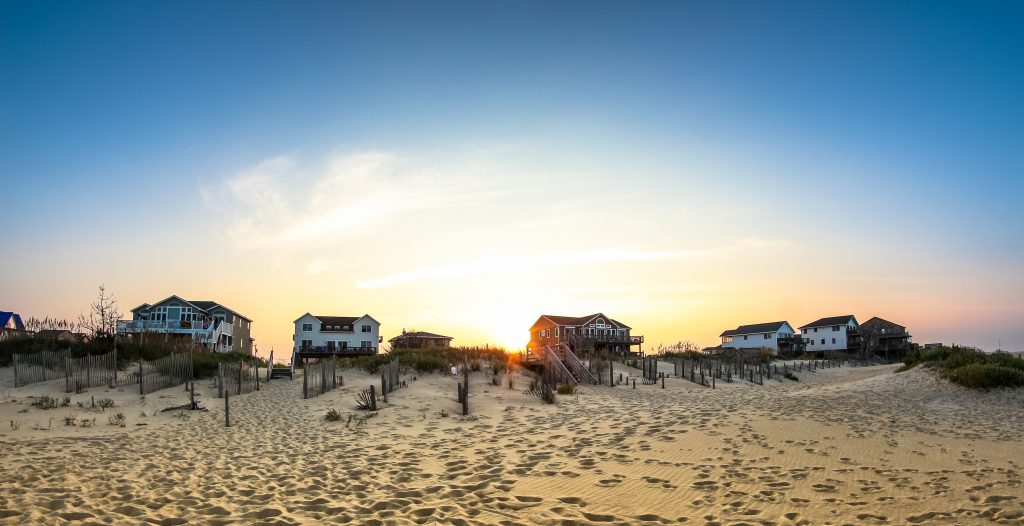We can list a million reasons we’re all blessed to live so close to the beach. From relaxing weekends in the sun to awesome dinner views, there’s no shortage of reasons we should do our best to protect the beach and its creatures. The months of May through October require beachgoers to exercise a bit more caution during beach visits.
Whether you live on the ocean in Jacksonville or just visit for a beach day once in a while, there are some simple ways you can help protect the sea turtles. From installing turtle safe glass (yes, it’s really a thing!) to taking part in a local beach cleanup, giving the sea turtles a safe place to nest this year can be simple.
4 Ways to Protect Sea Turtles During Nesting Season
Keep the beaches free of trash and debris
There’s a reason for those beach cleanup Facebook groups after all! Many locals around Jacksonville’s beaches can’t stand the sight of trash lingering on the sand. Not only is it unsightly, but materials like plastic and fishing nets can harm and kill sea turtles.
Sea turtles often mistake plastic bags for their main food source -- jellyfish, which causes them to starve or die. Fishing gear like nets and hooks can choke or entangle sea turtles. Do your part by cleaning up a piece of trash or two on your next beach walk.
Minimize the lighting that comes from your beachfront home
This is where turtle safe glass comes in. These special windows are tinted to reduce the amount of light your home projects onto the beach. While beachfront homes in Florida are required to take certain precautions to reduce their light transmittance, this is one of the best (and most stylish) ways to do so. Talk to one of the most trusted window companies in Jacksonville, FL about your turtle glass options. We’ll help you choose the style and color that’s right for your home.
So you know you’re required by Florida law to install certain windows, but why? When baby sea turtles follow the light of the moon to migrate to the ocean, artificial lighting can disorient them. Instead of wandering to safety in the water, young sea turtles can mistake your house for the moon, costing them their lives.
Give nesting female sea turtles some privacy
Sea turtles spook easily, which can cause them to go back into the ocean without nesting -- this is called “false crawling”. During nesting season, experts and volunteers scour the beach early in the morning for sea turtle eggs so they can rope off the area. While they do their best to get to these nests before visitors arrive, there’s always the chance for a stray nest. If you come across a nesting female, immediately make a non-emergency call to the police. They’ll inform the experts so the nest can be properly marked.
Keep in mind that it’s illegal to touch the turtles and hatchlings unless you possess a State FWC Permit. The best way to avoid causing irritation to female sea turtles is to stay 20+ feet away from her and outside her line of sight. Never use your flashlight or flash photography near a sea turtle.
Avoid bonfires during nesting season
Beach fires have the same effect on nesting sea turtles as light from your windows, flashlight or camera flash. The heat and light from your bonfire attract sea turtles, which can disorient and kill them. A great rule of thumb during nesting season is to keep the beach clean, dark and flat.
If the beautiful beachfront homes seem a little darker from May through October, it’s because the turtle safe glass is doing its job. The state of Florida takes wildlife protection very seriously, which is why it’s crucial to follow suit and avoid artificial lighting.
Do Your Part as an Oceanfront Homeowner in Jacksonville
American Window Products loves being a part of the effort to protect sea turtles along the Jacksonville, FL coastline. While we can’t go out and pick up every single piece of plastic, we can make sure every customer of ours with a house on the beach is provided with the knowledge and resources for turtle safe glass.
The Model Lighting Ordinance requires all homes and businesses within a certain vicinity to the beach to reduce the amount of light coming from the building. While some opt to close their blinds every single night, many counties have started to require turtle safe glass. Reach out to us today if you think your beach house needs windows that will protect the sea turtles.

